Three Areas DISC Doesn’t Measure
Adam Stamm
Managing Partner: Online DISC Profile
The Three Limitations of What DISC Can Measure Around Communication
DISC assessments can decode anyone’s communication style, motivations, and stressors, but they do have limits on what they can measure. Since 1986, we have seen how DISC’s ability to allow a deeper understanding of these areas will help anyone who wants to improve their work and interactions with others.
However, it’s essential to recognize that DISC doesn’t measure all aspects of how you communicate.
We have found that DISC has three limitations in improving and identifying other aspects of your communication skills. DISC does not measure or provide instruction about the three areas:
- Listening
- Non-verbal cues
- Self-Confidence
In this article, I will showcase why I believe it’s essential to consider these areas in addition to learning about your DISC Personality as you work towards improving your communication.
Listening: The Other Half of Communication
Listening is a skill, like playing a sport, speaking a language, or mastering a hobby.
Over time, we all develop a particular way of listening. Furthermore, how we listen is measurable and identifiable as a particular listening style that differs from your DISC style.
Researchers showed that our listening style can correlate with our DISC style, but it’s much more likely that the information we are listening for differs from what motivates us and how we communicate.
For example, just because the I-Style person seeks validation from others doesn’t mean they will hear and recognize that same need from others.
Unfortunately, listening is often forgotten when learning how to communicate more effectively. We listen more than we speak but don’t spend as much time identifying what we are listening for in any conversation.
Here are two listening courses that can help you improve your listening skills
Make Listening Your Super Power
This live, online course, teaches a 3-step model to become a better listener. You will have in-session practice, and complete a self-assessment to learn your listening ability.

ECHO Listening Intelligence
Learn your listening style and how to adapt your listening preferences to become a better communicator. Complete the training program and improve your listening.
Non-verbal cues: The Unspoken Communication
Psychologists have found that people of all cultures, demographics, and socioeconomic backgrounds share an understanding of what certain facial images represent. This research sheds light on the power of unspoken communication, which we take for granted every day.
For example, did you recently share a laugh with a stranger on a plane or train? Did their raised eyebrows, smile, and open eyes help you understand that what they said was in jest?
Or, perhaps you knew immediately something was off with a partner or close friend. They didn’t need to say anything, but their demeanor said everything.
This is the paradox of unspoken communication.

We all use many verbal cues to underline, emphasize, and suggest meaning in our speech. Over time, our expressions have developed to relay this communication quickly and effectively.
However, this area of communication is unrecognizable with DISC. While DISC will help you understand the stressors of each DISC style, it won’t tell you how to read someone’s non-verbal cues.
The only way to decipher what someone is saying in this arena is to ask and to be genuinely curious.
Confidence: What we wish we said
We all can think of past conversations where we wished we had said something, but we held back our voices out of fear of not speaking correctly.
Alternatively, there are other conversations in which we respond off the cuff in a way that makes us look petty or mean because the topic touches on an area we feel sensitive about.
Confidence, or lack of it, comes in many shapes and colors, and DISC does not measure it.
For those familiar with the DISC model, you might believe DISC measures confidence. After all, doesn’t the D in DISC mean Dominant? It’s an easy conclusion to make.
Those with the D-Personality are direct and prefer to work at a fast pace, but they can also feel highly incapable, which can cause stress and anxiety. Improving in this area exceeds what DISC can measure and often requires self-reflection and practice. Over time, and with compounding successes, we can all build confidence in our work and communication.
Building confidence in communication could be due to a lack of communication skills, or it could be because of all the noise going on internally.
Below, I’ve provided a link to a communication skills course, and to a mindfulness app. Think about your own past experiences and ask yourself if you feel that stress or skill is getting in the way of being a more confident communicator.
Communicate with Confidence
This live, online course, teaches a 4-step process for speaking more clearly and with greater impact.
Develop mindfulness and confidence
Learn how to acknowledge stress, anxiety, and other emotional noises. Develop strategies that promote your mental health.
Looking for help to implement DISC with your Organization?
We’ve worked with thousands of organizations to deploy the language of DISC to improve communication, culture, and relationships.
Get in touch with us if you are interested in leverage DISC in your organization.
"*" indicates required fields
